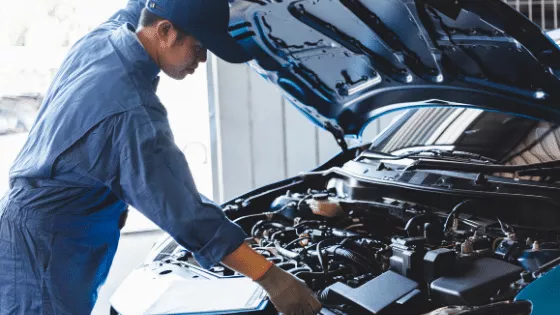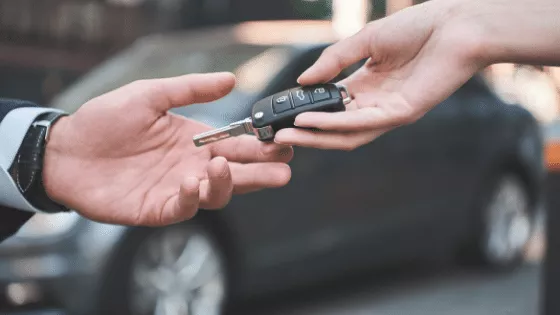The first step of your personal finance journey, in general, is to figure out which purchases in your life are bettering your financial future and which ones are hurting it. This means sitting down and thinking about the big questions like ‘Should I rent or buy?’, ‘Should I invest or save’, or ‘Is a car an asset or a liability?’.
When figuring out whether your next purchase is an asset or a liability, there is nothing quite as divisive as a car. Some people believe it is one of the best investments you can make while others see it as one of the objects that become worthless the moment it leaves the showroom.
Whether your car is a liability or an asset largely depends on the factors that led you to buy it. Factors like how you paid for it (car loans, credit card, or cash), whether it is insured, what you use your car for, etc. determine whether it is an asset for you personally. The short answer is a car is a depreciating asset but there is a little more to it.
Table of Contents
Assets vs Liabilities
To understand whether your car is an asset or not, you need to understand exactly what an asset is. Taking a moment to know the differences between an asset and a liability will set the foundation for the rest.
What Is an Asset?
An asset by definition is ‘anything of monetary value owned by a person or business.’ (Referring to The balance). So, essentially anything that can generate a positive economic value would be considered an asset. This is not just limited to your motor vehicle.
It extends to your house, your investments, your furniture, your cash, your retirement fund, your property, and quite a few others.
Frankly, a quick Google search will tell you that even a vehicle is considered part of your tangible assets.
But is it really that simple? Not really. As I have already mentioned, not all cars (or vehicles) are an asset. It needs to be a vehicle from which future economic benefits are expected.
So anything that you own that is of economic value and can benefit you in the future would be considered an asset.
What Is a Liability?
Now that we know what an asset is, let us talk about liabilities. An entity’s liability is the sacrifice of economic benefits that it must make to another entity as a result of past transactions.
Examples of a liability include:
- Student Loan Debt
- Credit Card Debt
- Bank Debt
- Wages Owed
- Loans of any kind
- Mortgage, etc.
You do not own liabilities. They are a sum of money that you owe to someone and there is no economic benefit in the future for you.

Is a Car an Asset or a Liability?
Knowing what assets and liabilities are doesn’t quite answer the question ‘Is a car an asset or a liability?’ because it is a little less straightforward. Compared to, let’s say, a bank loan, a vehicle is a little different.
One of the most important factors that affect the answer to the above question is how you paid for your vehicle. Did you pay for it all at once or is it a financed car that you are paying off on a monthly basis?
If the amount you owe for your car is more than what it is worth, it is a liability. So, for example, if you’re a car owner with a vehicle worth $10,000 and you have an outstanding loan for $20,000 to pay off, your car would be considered a liability.
On the other hand, if what you owe is less than what your car is worth, it would be considered an asset.
Unfortunately, it gets a little trickier than that. Even if your car does fall under the asset category above, it is still a depreciating asset. Cars depreciate because they lose value over time. Think of it as you would a piece of machinery in a factory. It is an asset since it has economic value but each year it will depreciate with the wear and tear of the machine.
When Does Your Car Become a Liability?
Your car’s costs do not end once it leaves the showroom. You keep paying for auto loans, fuel, maintenance, and other regular car expenses. So, your car is never truly a liability (since you do not owe any money on it) but it is an asset that decreases in value and becomes worthless as time goes on.
So, the real question to ask yourself is if you believe it is a good investment for you. This does not necessarily mean monetarily. If your car takes you to work every day, makes your life easier, and is used on a daily basis- it is a good investment.
Real Costs of Owning a Car
Now that we know a car is a depreciating asset, let us talk about the real costs of owning a car other than the amount that it was sold for. Here are some recurring expenses you should be aware of when you put money down on a vehicle.
Car Insurance
Auto insurance quotes depend on a lot of factors- your gender, your driving record, your age, etc. So, there really is not an average quote that you can look at because it depends on your own situation. Nonetheless, it is important to keep this monthly expense in mind.
Maintenance
A car requires regular maintenance. According to AAA, the average cost of repairs every month is around $99 for a new car. This could be for something like an oil change, changing tire pressure, changing windshield wipers, etc.

Car Loan
Your car loan is going to depend on whether you took one out or not and what car you bought. No matter what the amount is, be prepared to budget it into your monthly expenses.
Fuel
This year, the average amount an American household will spend on gas is estimated to reach close to $5,000. That is almost $417 of your paycheck gone every month.
Depreciation Calculation
Lastly, it is important to emphasize that even though you do not make payments every month for the depreciation of your car, it is still considered a cost you incur. Per a car’s depreciation schedule, you can expect to lose about 40% to 50% of your car’s value within the first 5 years. So, on average, a new car depreciates 20% of its value in the first year and 10% every year after that.
You can receive information on how to calculate depreciation on a site such as Edmunds.
There are multiple factors that lead to depreciation such as vehicle age, wear and tear, mileage, etc. so keeping your car in good condition and having a low mileage are two ways to slow down how fast your vehicle depreciates.
You can also make up for the costs of owning a car with a side hustle. There are a couple of common ways people make money with their car-
- Driving for rideshare companies like Uber- The best and most common way is by signing up to be a driver with companies like Uber or Lyft.
- Advertising on their car- Advertising on cars is quickly becoming one of the go-to marketing strategies for small businesses and it brings in about $200 every month for the people that choose to sign their cars up for it.
- Lease or rent your car- Renting out your car on days you do not use it or while you are traveling is an easy way to make some extra cash. You can use a platform like Turo to get started leasing your vehicle.
- Advertising to your passengers– If you decide to become a rideshare driver for a company like Uber, a great way to increase your earnings would be to work with a company like VUGO that lets drivers make up to $300. You simply run video ads on a tablet during the duration of your passenger’s journey. If they interact with those ads, your income increases. This will also improve overall customer experience while making you a few extra bucks
These are not just ways to increase the overall value of your car but they are also great ways to make a steady stream of passive income.
How to Determine Your Car’s Value
So far we have covered the factors that affect the real cost of your car and the recurring costs you can expect to come your way. You still do not know the exact current value of your car and how much the value is declining from the purchase price. There are a couple of ways to fix that-
Compare Local Listings
What better way to figure out how much your car is worth than to see similar vehicles that are already up for sale. Try finding a similar car with the same make, vehicle age, and overall mileage on a listing site.
The approximate selling price should give you a fair idea of how much your vehicle is likely worth.
Use Kelley Blue Book
One of the easiest ways to find out how much your vehicle is worth is by using Kelley Blue Book, a great site for anyone who is interested in selling their car. You can see the blue book value of your car for two different situations- selling the car to a new owner yourself vs going back to the store and trading it in.
You will earn more selling the car directly to a new owner than you would with a trade-in but there is also more effort involved. Either way, you should get an idea of how much your used car is worth by simply entering some basic details like model, year, mileage, condition of the car, etc.

List It For Sale
If the reason you want to know the value of your car is that you want to sell it, why not just put it up for sale? This way you will get to see some quotes come in which will help you get an average price you can expect to sell it for.
Should I Include My Car in My Net Worth?
Including your car in your overall net worth is a good idea because net worth is calculated by subtracting your total liabilities from your total assets. This means that if your car is a tangible asset you should be including that within your net worth calculation.
However, since it is a depreciating asset you should keep in mind that the value does not remain the same over the years so you should make adjustments when necessary.
You should also include any auto loans in your liability category to get a good estimate at the end. To calculate your net worth, you can use a calculator like the one available at NerdWallet.
Wrapping It Up
Figuring out whether your vehicle is a good investment largely comes down to the decisions you have made when it comes to payment, how you use it, and what you plan on doing with it (if you plan on using your car as a side business, its value as an asset increases).
Even though a car loses value, there are a multitude of ways to get as much out of it as you can whether that means car advertisements or joining a rideshare company.
When preparing your accounts or calculating your net worth, your car will go on the assets side and your loan will go on the liabilities side but anything you earn or spend other than that is up to you and the decisions you make.
Buying a car is a big decision, especially when you’re on the FIRE journey. Check out our tips to determine how much car you can actually afford!

